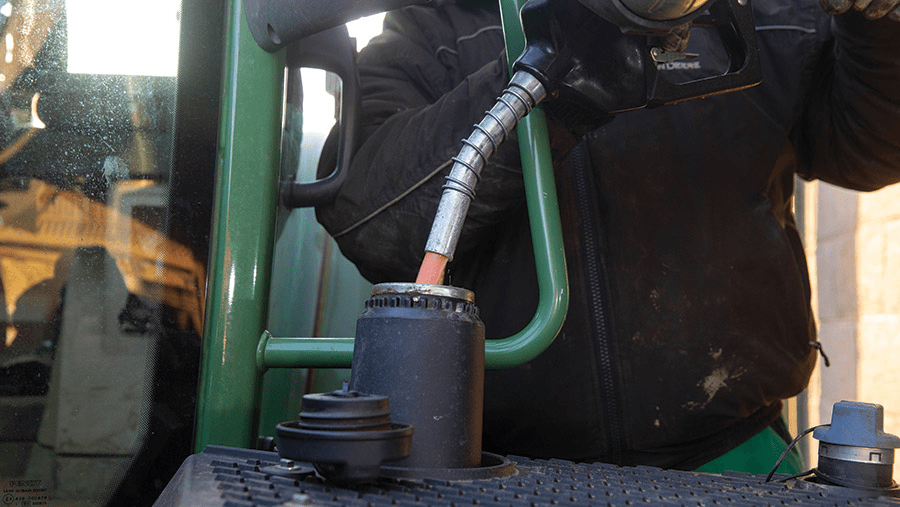Red Diesel Gas Oil
What is it?
Red Diesel or Gas Oil (as it’s known in the industry in the UK) is also commonly known as 35 Second Burning Oil, Tractor Diesel and Generator Diesel. It is a liquid fuel product used for off road vehicles, plant & machinery and contains a red dye so it can be easily identified by VOSA & HMRC. The reason for this is that it carries a lower duty than regular road or white diesel also known as DERV and is therefore is a much cheaper fuel. (It is illegal to use Red Diesel Gas Oil on the public highway)
Who uses Red Diesel Gas Oil?
Red Diesel is used in many different sectors including Agriculture, Construction, Manufacturing, Critical Power Suppliers & Commercially for heating. Other users are Fairgrounds, Carnivals, as well as Barges & Marinas within certain criteria please contact waterways.org for more info.
Government Legislation & Gas Oil Red Diesel
Due to European and environmental pressure regarding vehicle emissions the UK government changed their legislation regarding Gas Oil in 2011. The new legislation changed the structure (or make up) of Gas Oil (Red Diesel) by increasing the level of BioDiesel content and reducing the level of Sulphur within Class A2 Gas Oil.
This new Gas Oil (Red Diesel) has an increased BioDiesel content of up to 7% this is also known as the FAME (Fatty Acid Methyl Ester) content.
Additionally poor performance can be seen in modern tractors using Class A2 Gas Oil as they have been designed for a Pan-European Market to run on DERV (White Diesel) which has a higher cetane level than Gas Oil.
BioDiesel – FAME (Fatty Acid Methyl Esters)
Fame is a fatty acid ester derived by a method called transesterification from waste cooking oils animal fats and vegetable oils such as rapeseed, sunflower and soya. Fame is used in the production of BioDiesel and since new legislation in 2011 up to 7% can now be included in Red Diesel Gas Oil.
Having Issues with Red Diesel Gasoil?
Recently in the UK and Scotland there have been a number of customers from different industry sectors who are experiencing difficulties with the performance of machinery, vehicles, Plant & Tractors that use Red Diesel, this is leading to customers questioning the operability of their machinery.
Some of the issues that have been raised with suppliers particularly in the East Anglia are of the Uk and Scotland are listed here:
- Blocked Fuel Filters
- Poor ignition associated with lower Cetane levels
- Algae/Sludge build up in tanks commonly known as Diesel Bug
- Water Content intrusion which can increase Corrosion
- Waxing usually associated with low temperatures
- Decreased Viscosity or Lubrication
Example
Modern agricultural machinery in particular today’s high Tec Tractors are designed for use in a Pan-European market which run on Road Diesel or DERV (White Diesel) not A2 Gas Oil (Red Diesel) as in the UK.
This has led to reports of blocked fuel filters and poor performance symptoms. At a Cetane number of 45 Red Diesel (Gas Oil) is below DERV (Road Diesel) by 6 points (Road Diesel has a CN of 51) and so modern vehicles such as tractors & excavators designed to burn Road Diesel can often struggle, with symptoms such as delayed ignition, excessive smoking, loss of power, intermittent idle, or general rough running!
How to Resolve Gas Oil Red Diesel Issues
To solve these issues we highly recommend using a good quality Red Diesel Gas Oil additive that will boost the cetane level to match the levels seen in Road Diesel (White Diesel or DERV)
Diesel fuel additives are now commonplace and even specified within the operator manuals of modern machinery in the agriculture and construction sectors, so without doubt additives are becoming a must have requirement rather than a possible option.
Fuel additives and fuel conditioners are available in various different blends & makes, some do problem specific jobs and some products will resolve a broader spectrum of issues
Typically, diesel fuel additives can do one or more of the following:
• Increase the Cetane level or (CN number), usually to a minimum of 51
• Increase fuel viscosity for better lubrication
• Remove soot & carbon deposits from the fuel injection system & components
• Improve fuel life whilst in storage
• Control and reduce moisture build up
• Prevent waxing and blocked filters
• Prevent algae build up “Diesel Bug”
From our own experience we highly recommend both Exocet Gas Oil Supreme & Vulcan Gas Oil Max, for more information and pricing get in touch via our enquiry form.


